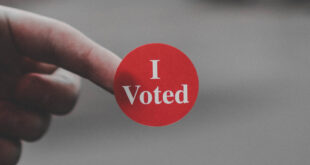Local Body elections have just been completed and as usual the voter turnout has been abysmally low – might have been only 15% in some areas. Arguably that is not enough to give anybody a mandate for anything.
So what do we do about it?
Not having such elections is not really a valid option. The alternative is to leave everything to central government and that is a recipe for disaster. Central government has a poor record of being sensitive to local issues and is inclined to the “one size fits all” solution. We need local government.
One solution is amalgamation, i.e. make it bigger and more important and may be more people will vote. Well look at Auckland for an example of why that might not be a good approach. Amalgamation, as in the case of Auckland, certainly saves money, but that is another issue.
A minor digression here is the use of Single Voter Preference (SVP) voting which seems to be very  much in vogue. Personally I think that SVP is a potential disaster, only saved in the current election because there were strong preferences for the elected candidates for mayor (don’t know about other elected officials.) The problem with SVP is two-fold – it is complex and most people can’t be bothered with the complexity or don’t understand it, and the other problem is candidate recognition – the voters may know the main one or two candidates, but after that it is a guessing game. Some say that the answer is to just vote for the candidates you know, even if then means just one. The problem with that is that in close elections it puts too much power in the hands of those who went down the SVP path but just picked the lower ranked candidates at random.
much in vogue. Personally I think that SVP is a potential disaster, only saved in the current election because there were strong preferences for the elected candidates for mayor (don’t know about other elected officials.) The problem with SVP is two-fold – it is complex and most people can’t be bothered with the complexity or don’t understand it, and the other problem is candidate recognition – the voters may know the main one or two candidates, but after that it is a guessing game. Some say that the answer is to just vote for the candidates you know, even if then means just one. The problem with that is that in close elections it puts too much power in the hands of those who went down the SVP path but just picked the lower ranked candidates at random.
My own preference is for a simple “vote for one candidate” solution.
It has been suggested that we give on-line voting a try and that would certainly be more in tune with younger voters. But I understand that although this can have a one off positive effect, behaviour tends to tail off to where it used to be fairly quickly after a few elections. However, I still think it is worth a try.
As already indicated, one of the key problems is that of candidate recognition but we are already flooded with lots of information of that type. Maybe more use of TV might help but I think most people would just tune out – and there is the question of who pays for the TV time.
There is undoubtedly a quality issue which does not help. Some of the candidates for local body elections are of a very poor calibre and tend to say what they think will be popular rather that what they think should be done. If that happens to produce ideas which are inconsistent with each other then they just ignore that. Anyway I would prefer people who have thought through their own policies even if I happen to disagree with some of them.
We could make it illegal not to vote. The Australians do that for at least Federal elections. However, not many people are prosecuted for not voting and it does not seem to make much of a difference, in fact it might make things worse by introducing more random or unconstructive voting. An example of unconstructive voting is deliberately voting for the worst person for the job.
Sad to say I am not sure there is a solution but to stick to what we have – flawed as it may be – but just try to tidy it up around the edges, e.g. try the on-line approach, keep improving the information flow, encourage better candidates to come forward. and so on. As the old saying goes “democracy is a lousy solution but it is a lot better than the next best alternative whatever it might be”.
The one bright light on the horizon is that the system does seem to be good at recognising success. By and large local politicians who have been successful and popular and who have done positive things for their communities tend to get re-elected – witness Tim Shadbolt in Invercargill! So it is not all bad I guess.
Start a discussion on this topic…
This is another of Bas Walker’s posts on GrownUps. Please look out for his articles, containing his Beachside Ponderings.









Stephanie - 8 years ago
Here in Upper Hutt we have had our local body elections recently with all those candidates who were standing again re-elected,including the mayor,who is back for a sixth term. Only 41% of the city’s registered voters bothered to do so. This is disgusting.41% is hardly representative of the local people. It isn’t even half!Shame on you Upper Hutt! I would also wonder,is this symptomatic of the New Zealand attitude towards voting as a whole? I shouldn’t be surprised.Voting has become seen as a chore and a bore by so many,rather than a public duty.You don’t need to be a history buff to know that the right to vote came as the fruit of a long,hard fight. Voting is our right nowadays.It is our duty as well as our privelege to exercise it.